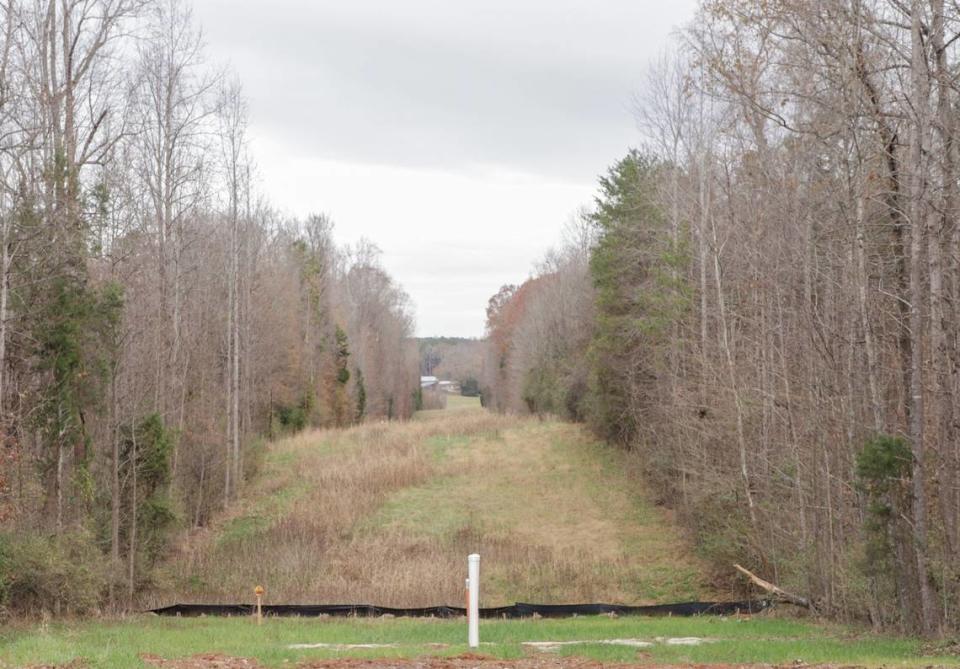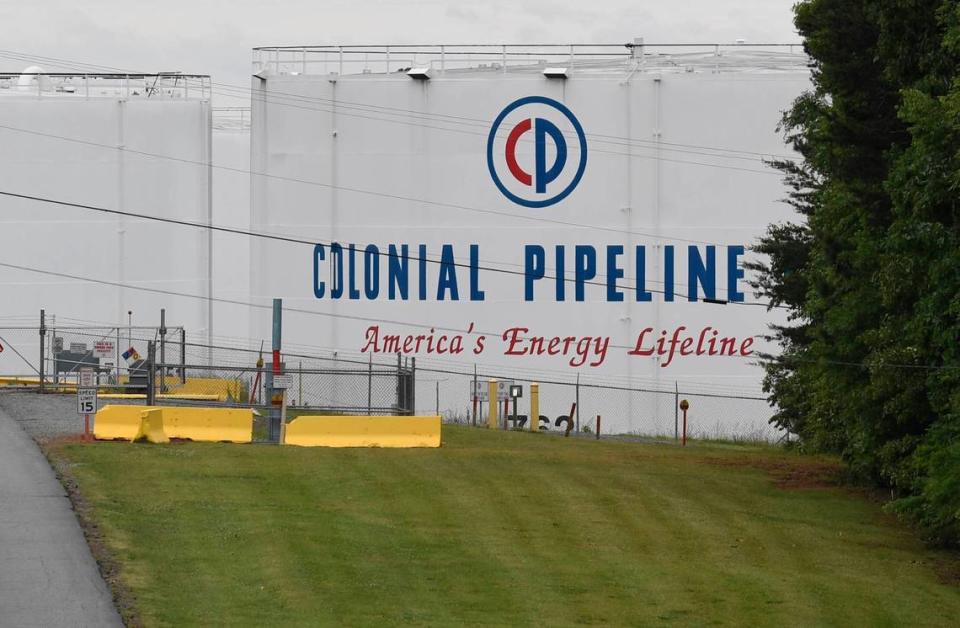Colonial Pipeline fuel spill near Charlotte was nearly twice as big as previously thought
Two million gallons of gasoline spewed from a crack in the wall of an underground pipeline near Huntersville in 2020, Colonial Pipeline Co. officials revealed in an updated estimate Friday.
That makes the discharge in Mecklenburg County’s Oehler Nature Preserve “the largest onshore fuel spill in the nation,” N.C. Department of Environmental Quality officials said in a statement Friday.
The new estimate surpasses the company’s previous estimate of the leak by 800,000 gallons.
Colonial announced the revised estimate two weeks after a Mecklenburg County judge approved a $5 million settlement of a state lawsuit over the spill. The order required Colonial Pipeline to release an updated spill estimate.

Crews have recovered 75% of the gasoline and will remain on site until the rest is drawn from recovery wells, Colonial officials said Friday.
“Colonial Pipeline remains committed to working closely with N.C. Department of Environmental Quality, county and community leaders as recovery efforts move forward,” according to a company statement Friday morning.
“We deeply appreciate the patience of this community, and we will continue to work to earn back their trust through our actions on the ground,” officials said in the statement.
Spill estimates keep rising
Two teenage ATV riders chanced upon and reported the leak in August 2020, The Charlotte Observer previously reported.
On Friday, Colonial officials told the Observer they have since pinpointed July 27, 2020, as the day of the spill. Crews stopped the leak once it was discovered on Aug. 14, officials said. The spill occurred at 14511 Huntersville-Concord Road, Huntersville town documents show.
The pipeline leaked 47,619 barrels of gasoline, or 2 million gallons, Colonial officials said Friday.
In September 2020, Michael Regan, then-secretary of NCDEQ, said 273,000 gallons of gasoline spilled on Aug. 14. The spill released amounts of benzene, toluene, xylene, ethylbenzene and possibly other petroleum chemicals that exceeded groundwater quality standards, Regan said.
Regan now heads the U.S. Environmental Protection Agency.
The estimated amount rose to 1,119,982 gallons, Colonial Pipeline reported to regulators in January 2021, nearly 18 times greater than the 63,000 gallons that Mecklenburg County originally reported in August 2020.

$5 million settlement
On July 7, Mecklenburg County Superior Court judge Kimberly Best approved the settlement of the state lawsuit over the spill.
Colonial Pipeline will pay almost $5 million in penalties and take extensive steps to assess and repair the damage under the settlement.
The settlement requires Atlanta-based Colonial to pay a $4.5 million civil penalty plus $250,000 in investigative costs and other fines.
All terms of the order took effect July 7, according to NCDEQ.
In Friday’s statement, company officials also said Colonial’s 385-plus subsurface monitoring and recovery wells are “working as designed.”
Impact on water supply
Data confirms the spill didn’t spread from the general area of the pipeline crack, Colonial officials also said Friday. Ongoing testing since the spill confirms “no impacts to water supply wells,” according to the statement.
Since the spill, the company has spent more than $50 million improving its pipeline system, Colonial officials said.
The pipeline, the largest system of its kind in the United States, stretches 5,500 miles from Texas to New York and can carry up to 3 million barrels of fuel each day. It supplies almost half the gasoline consumed on the East Coast.
This is a developing story.
Staff writer Michael Gordon contributed.

 Yahoo Sports
Yahoo Sports 
